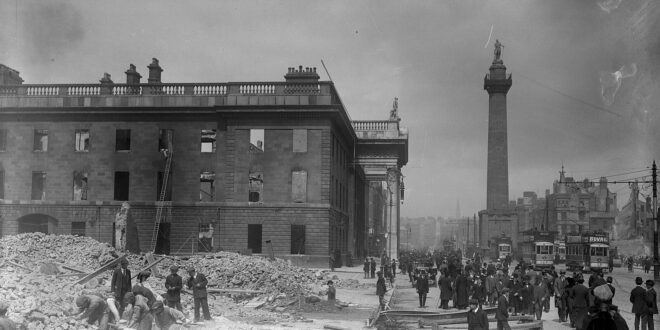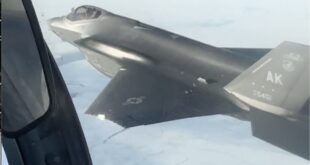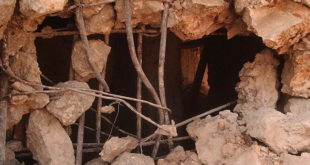As World War I raged across the European continent, the streets of Dublin erupted in violence on Easter Monday, 1916. Not with the tread of an invading army, but with gunfire from Irish rebels. On that day, a force of some 1,600 nationalists rose against British rule, to proclaim the independent Irish Republic. The rebels did not have a modern military arsenal to wield against British forces. Instead, they used personal and homemade weapons, and German Mauser rifles that had been smuggled into the country two years earlier.
READ MORE about the Easter Rising of 1916
From the outset, weapons were a central concern for the insurrectionists. This wasn’t a new phenomenon. Ever since the ill-fated rising of 1798, Irish rebels had been plagued by shortages in arms. In that rebellion, pikes – medieval by the standards of the day – were among the weapons of war. The organizers of the 1916 Rising wanted a solid arsenal, and they looked beyond Ireland to find it.
Among the men who took up that mission was Erskine Childers, a writer and former British civil servant. He and his companions in 1914 traveled to Germany, where they secured 1,500 single-shot, bolt-action Mauser Model 1871 rifles, along with 49,000 rounds of ammunition.
In July of that year, Childers’ own yacht, the Asgard, sailed into Howth harbor just north of Dublin, carrying 900 of the Mausers. The remaining guns came ashore at Kilcoole, County Wicklow, the following day. The weapons were hidden until the Rising began in earnest nearly two years later.
When the rebellion broke out, the rebels seized prominent buildings in Dublin, chief among them the General Post Office. They flew the green banner of the Irish Republic, and held their ground. But they were up against a superior British force. Martial law was declared. For six days, the capital city was wracked with gunfire and shelling before the Rising was put down.
But beyond the iconic figures and symbolic locations is the story of how the arsenal as patchwork as the cause was unified. Alongside the German Mausers were stolen British rifles, pikes forged in back alleys, and improvised grenades. The grenades were made from tin cans, and filled with black powder and shrapnel. They usually were ineffective. At Liberty Hall, headquarters of the Irish Citizen Army, rebels were working to build a machine gun, although no such weapon is known to have appeared on the battlefield.
One unusual grenade, shaped like a ship’s rivet and scored for controlled fragmentation, was recovered and remains on display at the National Museum of Ireland.
When the guns fell silent and the executions began, many surviving rebels were sent to Frongoch internment camp in Wales. Some escaped. Others remained in captivity, where prison became a training ground. The prisoners studied and plotted among themselves.
One of the rebels, American-born Eamon de Valera, was sentenced to death. He served only a brief prison term, and went on to become one of Ireland’s leading political figures, with a career spanning half a century.
By the time the War of Independence erupted in 1919, the rebels had become the Irish Republican Army. They turned farms into armories and cellars into bomb factories. Shotguns, common on farms, became weapons of guerrilla warfare. Rifles and revolvers were snatched from Royal Irish Constabulary barracks in daring raids. Women of the group known as the paramilitary Cumann na mBan played a prominent role, often smuggling arms beneath their skirts and in prams.
Ammunition was always in short supply, spawning an underground industry of its own.
In 1921, a treaty was signed that led to the creation of the Irish Free State the following year, and then a Civil War in 1922. The process led to forming the Republic of Ireland as it stands today.
Violent conflict in Ireland erupted again in the 1960’s during ‘the Troubles’ in Northern Ireland, where the participants once again turned to a combination of smuggling, theft, and improvisation in order to obtain weapons.
As for Childers, he was executed in Dublin by firing squad on 24 November 1922. While being escorted to the execution, he is said to have shaken hands with the entire squad. Just a few years prior, the rifles would have been a prime catch for the insurrectionists’ raiding parties.
 Soldier of Fortune Magazine The Journal of Professional Adventurers
Soldier of Fortune Magazine The Journal of Professional Adventurers






